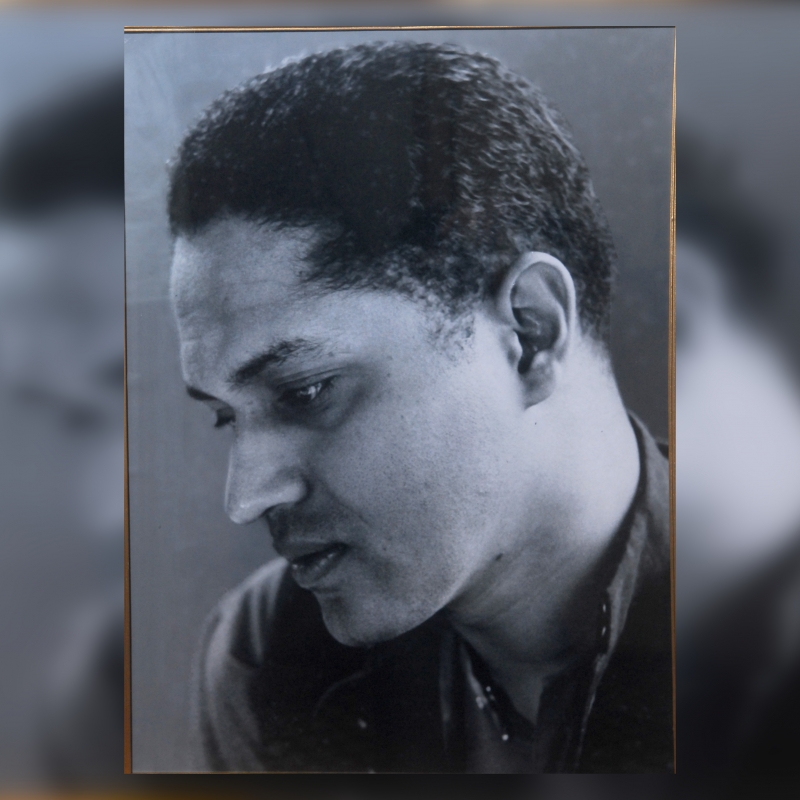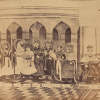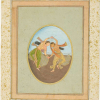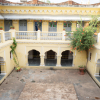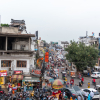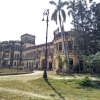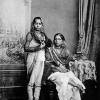Purushottama Lal, popularly known as P. Lal, was a poet, translator and essayist. Most significantly, he was also the publisher-owner of Writers Workshop in Calcutta. Here we revisit the contributions of Lal and Writers Workshop to Indian-English literature. (Photo courtesy: Ananda Lal)
‘Somebody should go to Calcutta and write a history of Writers Workshop,’ said Adil Jussawalla during a conversation. When his first book of poems, Land’s End, was published by Writers Workshop, his author bio read:
Am 22. Left for England in 1957 to study Architecture. Left architecture to write a play. Wrote a second play—a verse drama—before going to Oxford to read English. This is my first collection of poems. Have also written several short stories. And paint whenever I can.
Jussawalla will soon turn 80. He has, so far, not published the short stories or the plays. He is a winner of the Sahitya Akademi Award for literature—the highest award a poet in India can receive. The biographical note by the then 22-year-old is one of the many treasures that can be found in old Writers Workshop titles.
What started it all?
Purushottama Lal (1929–2010), the founder of the press, once wrote:
The main professed aim of WRITERS WORKSHOP is to demonstrate that ‘English has proved its ability, as a language to play a creative role in Indian literature...Its publishing focuses on English creative and transcreative work by Indians, or such work as deals with, or is inspired by or has relevance for Indian life and culture.’[i]
The opposition to creative expression in English by Indians found its voice in Bengali poet and Lal’s contemporary, Buddhadeva Bose, who referred to Indian-English (or Indo-Anglican as he called it) poetry as ‘a blind alley lined with curio shops, leading nowhere’ in The Concise Encyclopedia of English and American Poets and Poetry[ii] (1963). Bose, however, was a well-meaning cosmopolitan and not a provincial nativist. He had a close friendship with some of the leading English writers of his time, such as George Oppen,[iii] and had translated the works of several poets like Charles Baudelaire and Rainer Maria Rilke, among others, into Bengali. Why then was he so disparaging towards his contemporary Indian-English writers? We can only speculate. Responding to the entry, Lal sent out letters to several Indian-English writers, asking them to respond to Bose’s allegations. The answers of the respondents, along with their creative works, were published as Modern Indian Poetry in English: An Anthology and a Credo by Writers Workshop in 1969.
Much of the importance of the anthology, apart from Lal’s excellent introduction, lies in the replies given by individual poets. The responses themselves cover a wide variety of styles, from the quirky (Lawrence Bantleman signs off as ‘Lawrence Dante Pushkin Buddhadeva Bantleman’) to the philosophical (Jussawalla finds fault with Bose’s ‘vision of history’).
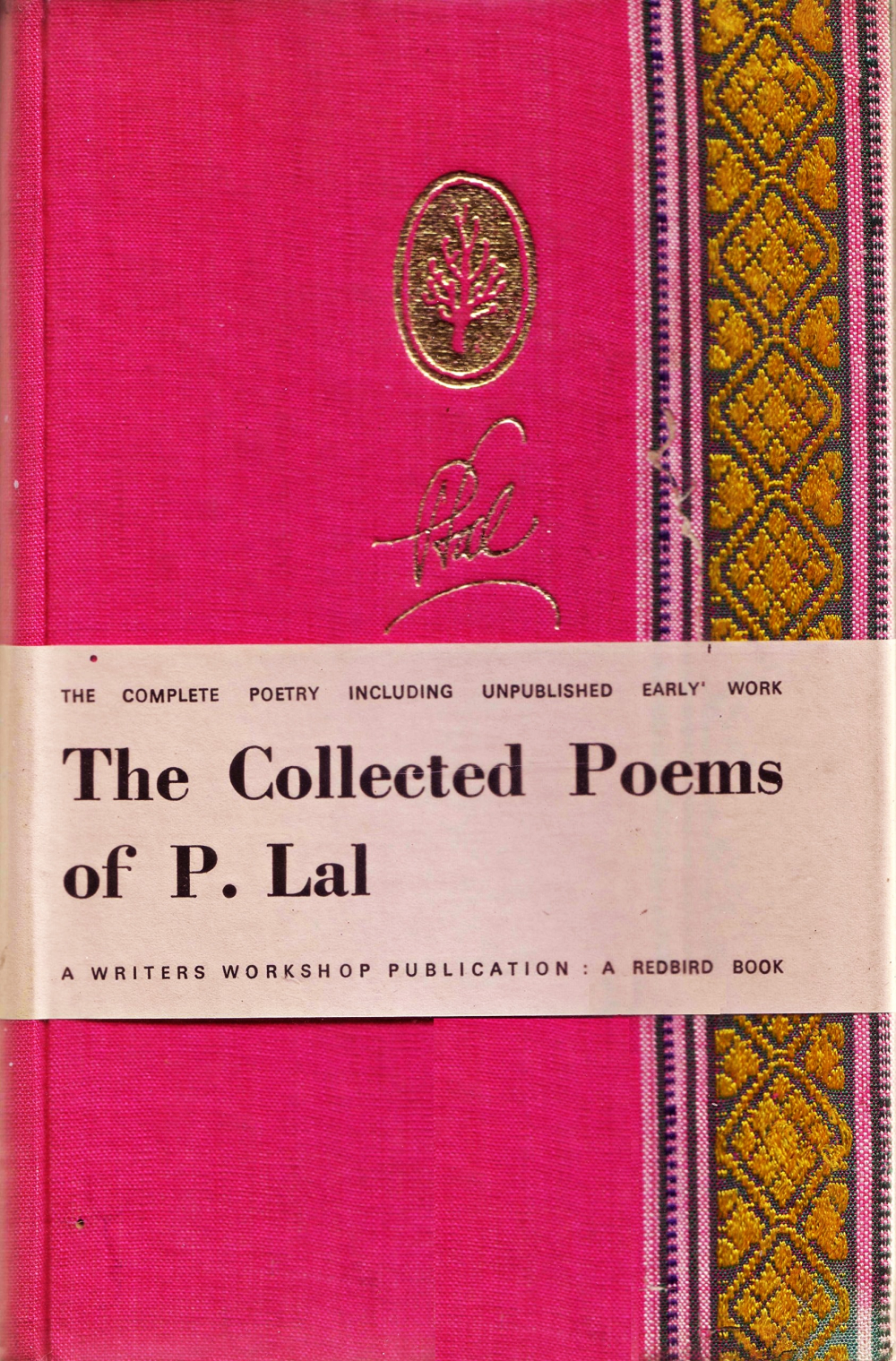
The early work published by Writers Workshop testifies to the challenges of the two kinds of revolt that were necessary to usher in a new poetic language. The first was a revolt within the inherited tradition of English poetry written in India. ‘To rebel against giants, who use their excellent strength tyrannously and thereby deaden healthy growth, is a good thing,’ Lal said in the introduction to the anthology.[iv] The giant that he took issue with was Sri Aurobindo who, for him, symbolised a flowery romanticism. (For much of Lal’s insistence on modernism, however, he himself can be described as a ‘neo-romantic’ poet.[v] A look at Arvind Krishna Mehrotra’s anthology[vi] and his insistence on ‘the sharp-edged nature of Indian verse’[vii] shows that there was arguably another shift in English poetry in India beginning in the 1960s, which was primarily centered around Bombay.) The second revolt was against those who, like Buddhadeva Bose, discredited creative writing in English by Indians. A significant part of Lal’s defence was also in pursuing his readers to appreciate poetry ‘for its own sake’: ‘I am not reading poetry for spiritual propaganda or propaganda of any sort, whether it plugs aspirin or bhakti’.[viii] Building this secular identity for poetry is something we now take for granted, but it was a struggle to make readers aware of that identity in newly independent, secular India.
Lal was also associated with the transcreation of Indian works. He began the monumental process of translating the 18-volume Mahabharata into English in 1968. The process nears completion as Writers Workshop enters its sixtieth year. What lies in the future? Ananda Lal, his son and the current editor of the press, says:
I plan to continue discovering new authors as long as I can, and have some major classics on the horizon as well: the completion of my father’s translation of the full 18-volume Mahabharata, never done in English before; a translation of the Malay Ramayana; and a translation of Annamacharya's Telugu devotional songs.
He is, however, apprehensive about how long the press can continue unless they find financial support.
The enthusiasm of the then 22-year-old Jussawalla is not lost on the younger poets who have recently published their first collections with the press. ‘I chose Writers Workshop because of their indigenous modes of publishing: from the author’s contract to the finished book, everything is handmade,’ says Sahana Mukherjee. The quintessential Writers Workshop covers, made of handloom cloth, were invented by Mohiuddin Khan.
Akhil Katyal remembers seeing the covers in a library: ‘During my PhD years in London, I had seen Agha Shahid Ali's first two books in the British Library, the same (half charming, half toy-town) sari-clad covers.’ Perhaps the relevance and need for a press like this is best conveyed in the words of author Annanya Dasgupta, who has the last word: ‘Writers Workshop is an instance of how not everything needs to be largescale to be bigger than life.’
This article was also published in The Indian Express.
Notes
[i] P. Lal, ‘The Torch not the Sceptre,’ Writers Workshop India, n.d., accessed August 23, 2019, https://www.writersworkshopindia.com/the-torch-not-the-sceptre/.
[ii] Stephen Spender and Donald Hall, ed., The Concise Encyclopedia of English and American Poets and Poetry (London: Hutchinson, 1963), 415.
[iii] Pat Clifford, ‘George Oppen, Buddhadev Bose and Translation,’ Jacket Magazine, 2008, accessed August 26, 2019, http://jacketmagazine.com/36/oppen-clifford-bose.shtml.
[iv] P. Lal, ed., Introduction to Modern Indian Poetry in English: An Anthology and a Credo (Kolkata: Writers Workshop, 1969), xix.
[v] Shahnaz Habib, ‘P. Lal Obituary,’ The Guardian, London, December 5, 2010, accessed August 24, 2019, https://www.theguardian.com/world/2010/dec/05/p-lal-obituary.
[vi] Arvind Krishna Mehrotra, ed, The Oxford India Anthology of Twelve Modern Indian Poets (New Delhi: Oxford University Press, 1993).
[vii] P. Lal, ed., Introduction to Modern Indian Poetry in English: An Anthology and a Credo (Kolkata: Writers Workshop, 1969), viii.
[viii] Ibid., viii.
